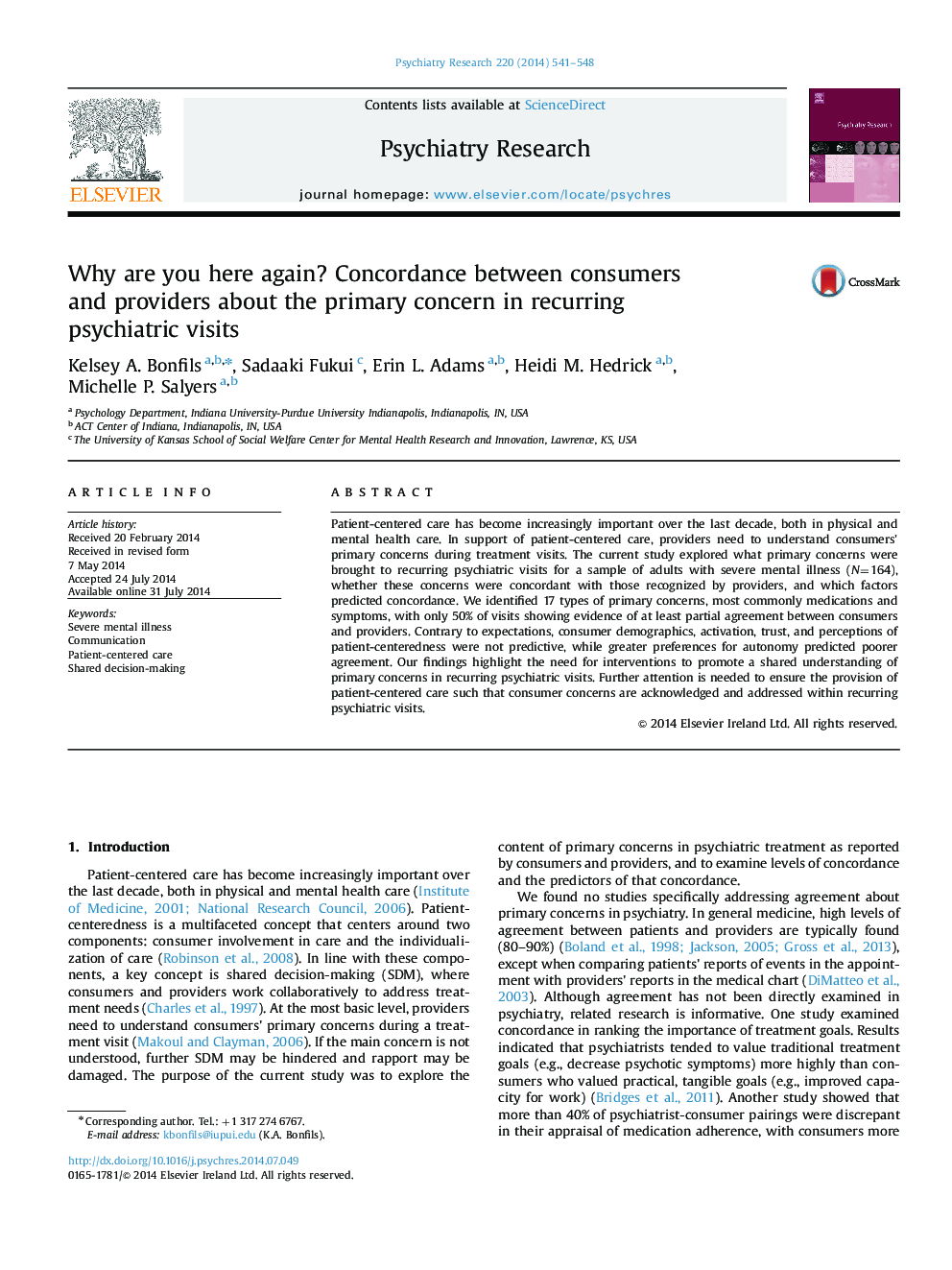| Article ID | Journal | Published Year | Pages | File Type |
|---|---|---|---|---|
| 6815059 | Psychiatry Research | 2014 | 8 Pages |
Abstract
Patient-centered care has become increasingly important over the last decade, both in physical and mental health care. In support of patient-centered care, providers need to understand consumers׳ primary concerns during treatment visits. The current study explored what primary concerns were brought to recurring psychiatric visits for a sample of adults with severe mental illness (N=164), whether these concerns were concordant with those recognized by providers, and which factors predicted concordance. We identified 17 types of primary concerns, most commonly medications and symptoms, with only 50% of visits showing evidence of at least partial agreement between consumers and providers. Contrary to expectations, consumer demographics, activation, trust, and perceptions of patient-centeredness were not predictive, while greater preferences for autonomy predicted poorer agreement. Our findings highlight the need for interventions to promote a shared understanding of primary concerns in recurring psychiatric visits. Further attention is needed to ensure the provision of patient-centered care such that consumer concerns are acknowledged and addressed within recurring psychiatric visits.
Related Topics
Life Sciences
Neuroscience
Biological Psychiatry
Authors
Kelsey A. Bonfils, Sadaaki Fukui, Erin L. Adams, Heidi M. Hedrick, Michelle P. Salyers,
